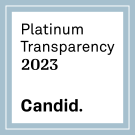Affordable Housing Developers and Affordable Housing Policy
The Affordable Housing Policy is meant to be a compilation of policies and tools local governments can use to preserve and promote affordable housing development in their respective communities. These policies include inclusionary zoning, expedited permitting, density bonuses, housing rehabilitation programs, expiring use of federal subsidies, adaptive reuse, affordable green building, housing trust funds, dedicated revenue source, home purchase assistance, and community land trust. Under the Affordable Housing Policy, the government is supposed to help local councils and developers work with local communities to plan and build better places to live for everyone. Building affordable housing, improving quality of rented housing, helping more people buy a home, and providing housing support for vulnerable people is all a part of the plan.
Housing costs under the Affordable Housing Policy are considered affordable if they do not exceed a specified percentage of a household’s income. For example, renter households should not be required to pay more than 30% of their gross monthly income on rent and utilities. The owners of the households in question should not have to pay more than 35% on house payments, homeowners association dues, insurance, and property taxes. All units must remain affordable to subsequent renters and owners by means of recorded long-term affordability controls.
An Affordable Housing Policy cannot be put into motion without Affordable Housing Developers. The mission of Affordable Housing Developers is to provide safe and sanitary housing for low-income residents as well as expand to include promotion of adequate and affordable, economic opportunity, and a suitable living environment free from discrimination. Affordable Housing Developers utilize federal and state affordable housing programs that encourage private investment in rental housing for low-income families. Devoted to building well-designed, sustainable housing that creates a quality environment for residents enhances the surrounding neighborhood. Picture Seattle, or Bellevue, or Redmond, or even Sammamish, when all the citizens find affordable homes in healthy neighborhoods. They have strong schools, good parks and recreation, healthy natural areas, safe streets, quality food stores, and equitable access to housing as well as opportunities that safe, stable housing can deliver, free from discrimination.
Affordable Housing Developers are more than aware that affordable housing is more than a great financial investment, but a great social investment. When communities build housing for people with low incomes or their homeless, they make their communities a better place. Once an Affordable Housing Policy is in place, the Affordable Housing Developers can increase the supply of multi-family housing, stimulate economic growth, and revitalize neighborhoods by financing the creation and preservation of affordable housing for low, moderate, and middle income families and individuals. Working seamlessly together like that is the goal of the Housing Development Consortium. They want to bring organizations together to address such a drastic problem in America. Communities that take care of all of its people are stronger and foster a greater sense of belonging for its members. When community members are happy and feel like they belong, they want to work to contribute to make their home an even better place. The Housing Development Consortium organization recognizes this fact and wants to bring as many organizations together as possible to achieve a greater impact faster by means of collaboration.


